Dear Friends,
Greetings from the desk of Tricontinental: Institute for Social Research.
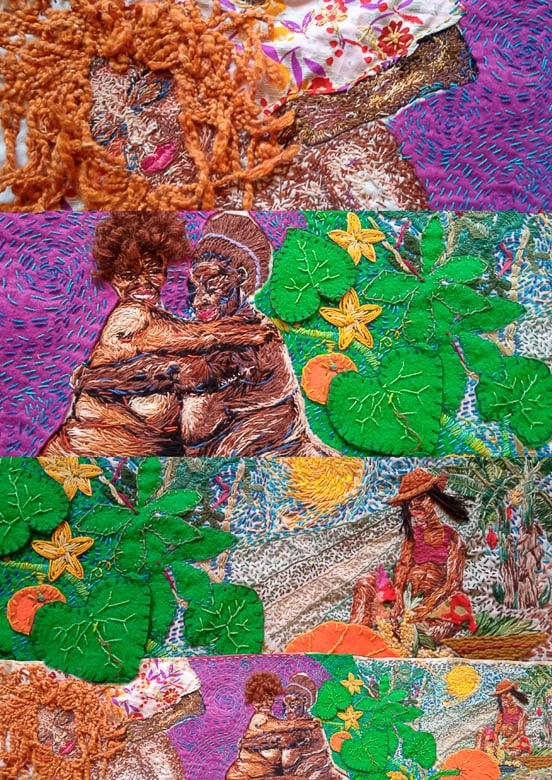
Alejandra Laprea (Venezuela), El acuerpamiento de las mujeres es nuestra estrategia de defensa (Women’s Embodied Solidarity Is Our Defence Strategy), 2022.
In 1945, when the United Nations Charter was drafted, its authors and those who first adopted it carefully crafted language on how to deal with armed conflict in the world. Between the signing of the charter in June and its coming into force in October, the United States dropped atomic bombs on two Japanese cities: Hiroshima, on 6 August, and Nagasaki, on 9 August. It is hard to digest the fact that as the charter’s solemn preamble was being formalised, setting out to ‘save succeeding generations from the scourge of war, which twice in our lifetime has brought untold sorrow to mankind’, the United States armed forces were preparing to destroy two civilian cities in a country already on the brink of surrender.
Nonetheless, the authors of the charter thought long and hard about the problem of belligerent states and produced Chapter VII, which outlines two approaches to prevent war. The first approach was to use as many non-military methods as possible (Article 41) before the United Nations could authorise violence against a belligerent state (Article 42). The charter noted that the UN Security Council (UNSC) ‘may decide’ to call for the ‘complete or partial interruption of economic relations and of rail, sea, air, postal, telegraphic, radio, and other means of communication, and the severance of diplomatic relations’. The only time that the UNSC has used the full weight of Article 41 has been against the racist government of Southern Rhodesia from 1968 (UNSC Resolution no. 253) to 1979 (UNSC Resolution no. 460), with near full use of the article against Iraq from 1990 to 2003 and Yugoslavia from 1992 to 1995. The most important thing about this resolution is that the use of sanctions (a word that does not appear in the charter) must be authorised by the UNSC. One state can apply its own sanctions on another state in a bilateral dispute, but it cannot legally force other states to abide by them. To do so is a violation of the UN Charter.
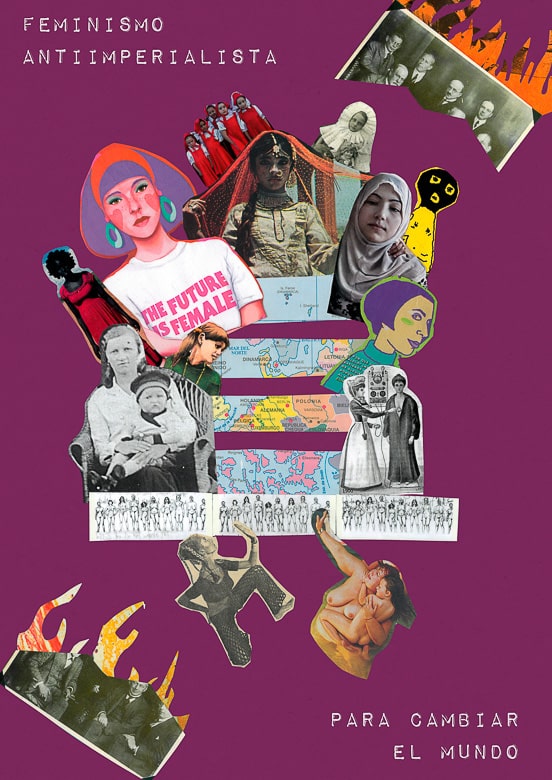
Valentina Machado and Valentina Lasalvia (Uruguay), Untitled, 2021.
The last point is pertinent because the United States currently imposes sanctions (a form of Unilateral Coercive Measures) against about forty countries without a UNSC mandate. And these have been increasing: from 2000 to 2021, the last period reviewed by the U.S. Treasury Department, the number of U.S. sanctions increased by a remarkable 933%. The reason why U.S. sanctions, which would be legal if they were merely bilateral, are illegal is that the United States chastises and punishes third countries that violate them and transact normal commerce with sanctioned countries. Because the United States is at the centre of the international financial system (with the dollar, the SWIFT global payments system, and its veto power in the International Monetary Fund), it is able to strangle countries that otherwise would be able to compensate for the loss of trade with the U.S. by trading with the rest of the world.
The use of the word ‘strangle’ is not innocent. It is important to understand how these sanctions work: there are primary sanctions on targeted countries; secondary sanctions on firms or countries that trade with the targeted country; and tertiary sanctions on firms or countries that face secondary sanctions. This is endless. It is what has garrotted Cuba since 1962. Study upon study shows that they hurt the poorest of people in the societies under attack. They are as ‘targeted’ as the ‘smart bombs’ that destroy entire neighbourhoods and wipe out entire families. The gap between these unilateral coercive measures (UCMs) and a war with bombs is certainly great since the latter are far more destructive to the material infrastructure of the target country, yet the essence of the assault is the same: two forms of war, one with the harshness of blockades and the other with the viciousness of bombs. Sometimes people in power openly acknowledge the devastation. When U.S. Secretary of State Mike Pompeo was asked in 2019 by the Associated Press’s Matt Lee about the UCMs imposed on Venezuela, Pompeo replied, ‘The circle is tightening. The humanitarian crisis is increasing by the hour… You can see the increasing pain and suffering that the Venezuelan people are suffering from’. What do these illegal UCMs do? They create pain and suffering.
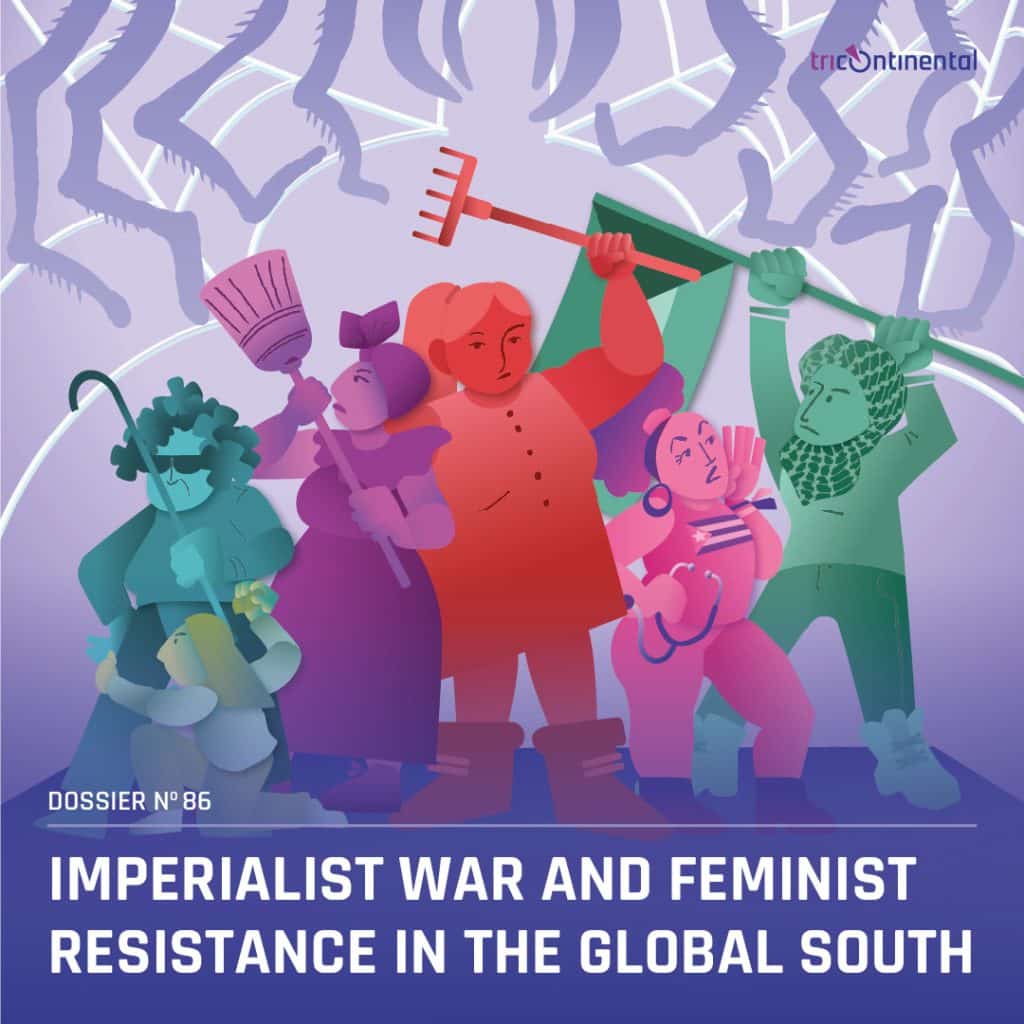
We have ample evidence of the impact of illegal UCMs on society. Since she took up the post in 2020, the UN special rapporteur on the negative impact of unilateral coercive measures on the enjoyment of human rights Alena Douhan has produced an important body of work documenting the effects of UCMs from Syria to Venezuela. In 2021, Douhan told the UN Human Rights Council that the impact of UCMs ‘is especially severe for vulnerable groups’, including women and children as well as ‘indigenous people, people with disabilities, refugees, internally displaced persons, migrants, people living in poverty, the elderly, people affected by severe diseases, and others who confront particular challenges in society’.
Our latest dossier, Imperialist War and Feminist Resistance in the Global South (March 2025), highlights the use of UCMs to attack states and societies that—by their very existence—defy the Global North. Our study on the impact of UCMs reflects what Douhan found in 2021, which is that these mechanisms harshly strike the most vulnerable groups. These groups, the ‘vulnerable’, lead the fight against UCMs: far from defenceless, they are at the forefront of mobilising against and resisting the cruelty of the hybrid war.
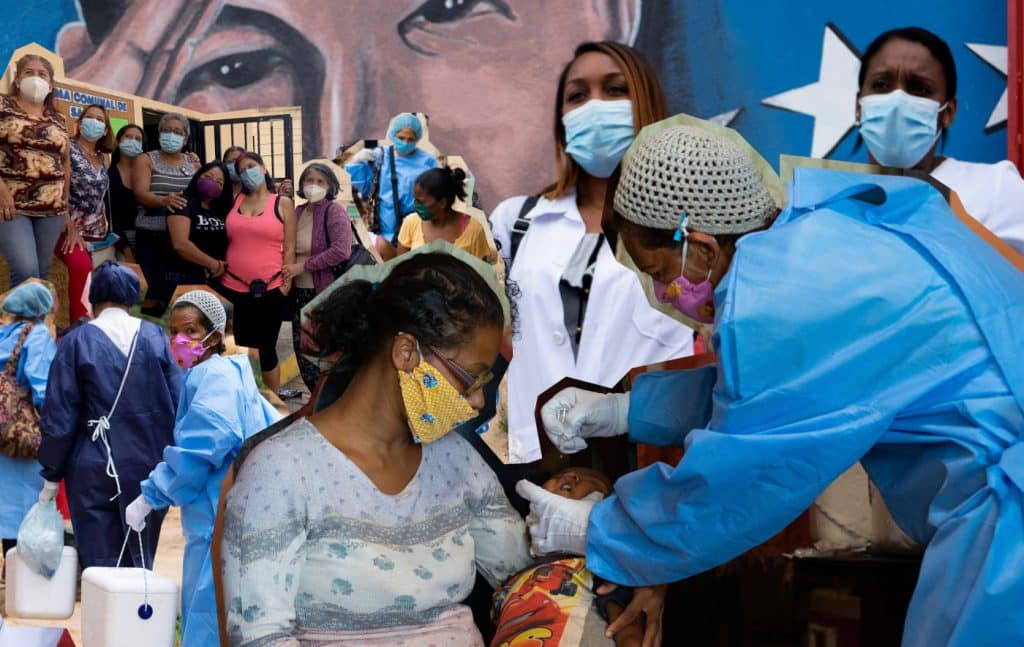
This dossier is largely focused on Venezuela, where we spoke with leaders of peasant and worker organisations such as Heroines Without Borders Organisation (Organización Heroínas sin Fronteras) and Venezuelan Housing Assembly Jorge Rodríguez Padre (Asamblea Viviendo Venezolanos Jorge Rodríguez Padre). Forced to hold together families in distress due to the atrocity of UCMs and the patriarchal obligations for women to overwhelmingly carry out the work of social reproduction, working-class and peasant women formed a variety of mutual aid groups as a way to build political power in their society. When they did not have running water or medicine, or indeed food, they set up collectives of clinics and food banks that had some state support but were largely the work of the women themselves.
In December 2021, I visited the Altos de Lídice Commune, where I met with a group of women who had gathered to confront the difficulties of the COVID-19 pandemic. The commune is made up of more than 6,000 people who are organised into eight communal councils (consejos comunales). Built on democratic assemblies, Venezuela’s communes (comunas) are envisioned as local spaces of self-governance and the building blocks for the construction of socialism. Mobilising the population, rather than just solving problems bureaucratically, is part of their philosophy. The women I met that day talked about the clinic they set up, which drew doctors from nearby hospitals to provide consultations and free medicine (sent from connections they had built with a women’s hospital in Chile). Women led this work; ‘we utilise the men’, said a leader of the group, Alejandra Trespalacios, in jest. One of their most moving and effective campaigns was an arepazo, where arepas (a round, stuffed cornflour patty) were distributed to the most vulnerable in the community. They would weigh children and the elderly every three months and give an arepa to anyone who was underweight as a symbol of their commitment to every person in the community; the data allowed them to know where to channel the food support in the neighbourhood. ‘These are times of struggle’, Trespalacios said. The arepazo was part of the commune’s struggle against malnutrition and hunger.
At the same time, our dossier notes that there must also be serious thought about how gender ‘reinforces the sexual division of political labour’ in important efforts such as these. ‘While women have an important presence and leadership role in community organising, this does not necessarily extend to other spheres of political representation and state management’. The struggle to ensure that women leaders move from the community level to greater responsibility and power is part of the essential fight of working-class and peasant women.
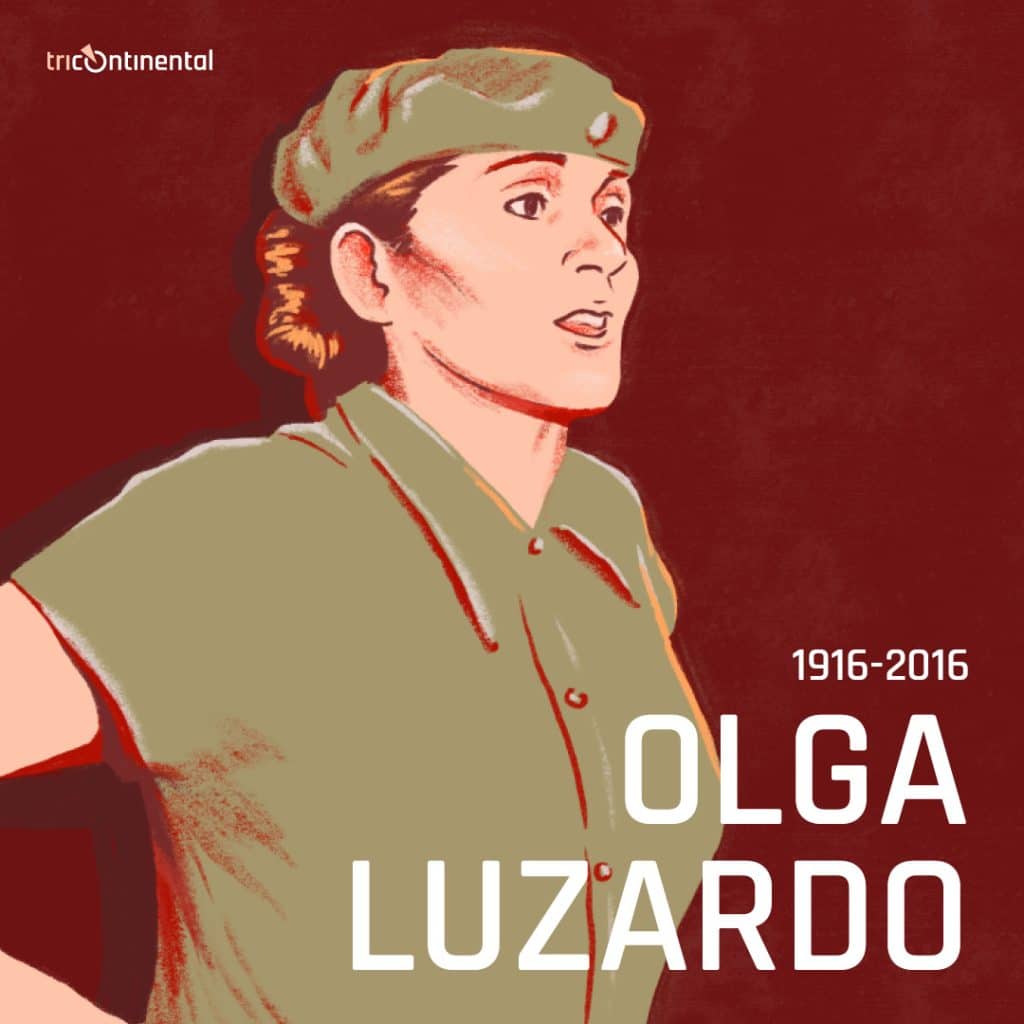
At the age of twelve, Olga Luzardo (1916—2016) joined a Marxist group in the northwestern city of Maracaibo. In 1931, she became one of the founders of the Communist Party of Venezuela (Partido Comunista de Venezuela, PCV). A young Luzardo taught at the PCV’s Ho Chi Minh School and brought her ‘travelling school’ across Venezuela to take Marxism to the people. In 1937, she participated in the Congress of Women of Venezuela (Congreso de Mujeres), which emerged out of the PCV’s women’s cultural groups. Arrested during the dictatorship of Marcos Pérez Jiménez, Luzardo was exiled to the Soviet Union and then returned to Venezuela in 1958. She had several pseudonyms, such as ‘Jorge’, which she used in her fight against the Venezuelan bourgeoisie, and ‘Petrovna’, inspired by the October Revolution, under which name she built a reputation for herself as a journalist and poet in her desire to craft new language for rebellion. While in prison between 1950 and 1952, she wrote the poems that later appeared in the 1998 collection Huellas frescas (Fresh Footprints), one of which urges her daughter Iguaraya Pérez, and indeed all girls, to be a ‘soldier’, a fighter for justice:
My daughter: I want you to be a soldier.
May your blood soak the
many-coloured flags that wave around the world
if it becomes necessary for our cause.May peace, impossible as long as
there are nations and borders,
never find you dreaming idly
and without a good rifle on your back.For the day when we all
have a weapon and a desire for a different life,
the entire Earth will become one homeland.In order for there to be peace, my daughter,
the poor of the world must take up arms.
And, for this reason, I want you to be a soldier.
Warmly,
Vijay

